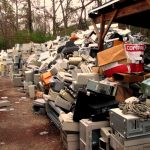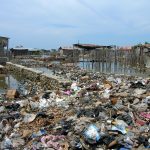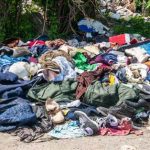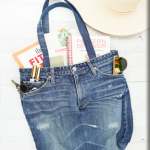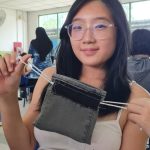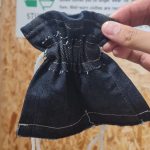The Problem of Textile Waste
Textile waste has become a significant environmental issue globally, particularly in countries like Ghana. The situation in Ghana is alarming, with massive amounts of second-hand clothes being dumped on beaches. According to a 2021 report from the BBC, Ghana imports over 15 million used clothes annually, with much of it ending up on the beaches of Accra, the capital city. This influx of textile waste harms the environment and local communities, as synthetic fibers take decades to break down. While many people aim to reduce waste, the sheer volume of discarded textiles continues to overwhelm landfills and ecosystems.
Many People Want to Make a Change
There’s a growing desire to combat textile waste, with many opting to recycle or donate their unwanted clothes. However, the solutions are not without complications. While donating clothing seems like a good option, many of these items end up clogging charity shops or being shipped to developing countries where they overwhelm local markets and become waste. The recycling systems for textiles are still limited, and much of the waste is disposed of improperly. The rise of fast fashion only adds to the problem, encouraging overconsumption and wasteful behavior, making it harder to address the issue effectively.
What’s the First Step?
The first step toward change lies in altering our lifestyles. We must resist the temptation of fast fashion, which promotes cheap, disposable clothing. Instead, we should focus on purchasing high-quality items that last longer, repurposing old garments, and supporting eco-friendly businesses. Small actions like upcycling, reducing consumption, and buying fewer but better pieces can collectively reduce the demand for new textile production and the resulting waste. Each of us has a role to play in reducing textile pollution and making a lasting positive impact.
PSJKM’s Perspective on Textile Pollution and the Solution
At PSJKM, we believe textile pollution is a significant challenge that requires urgent attention. In line with our commitment to sustainability and community empowerment, we advocate for creative solutions to transform waste into value. By teaching individuals how to upcycle old textiles, we help them develop valuable skills that not only contribute to waste reduction but also generate income opportunities.
Sew and Save
One of our key initiatives, the Sew and Save Program, directly addresses this issue. Through this program, we encourage the repurposing of textile waste, turning it into valuable products while teaching sustainable practices. We empower communities to make a positive environmental impact, create sellable items from discarded textiles, and improve their financial stability in the process.
We invite you to join us in this mission of reducing textile waste and promoting sustainable practices. Become a part of the change by signing up here. To learn more about our programs and follow our journey, visit us on YouTube and Facebook.
#TextileWaste #PSJKM #SewAndSave #Sustainability #EcoFriendly #Upcycle #SlowFashion #ReduceWaste #TextilePollution #Environment
- General Waste
- Sea Side Pollution
- Textile Waste
- Jeans to Bag
- Pouch Created by Nottingham University’s Student
- The Upcycling Pouch 2

